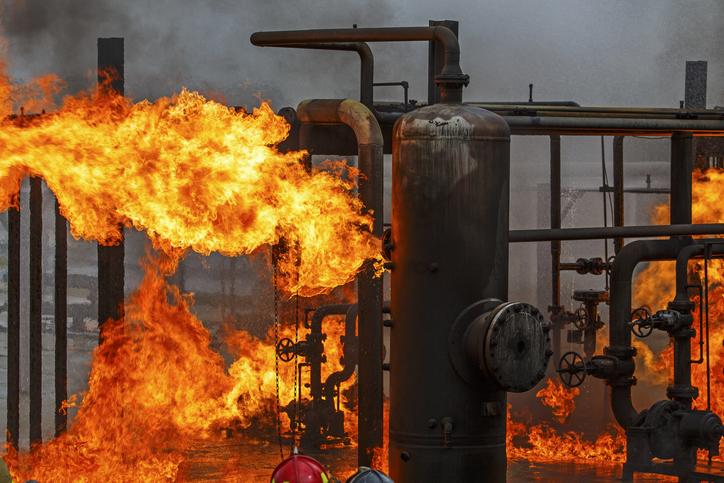
Officials in Sulphur, Louisiana, have confirmed that Monday night’s explosion at Westlake Chemical occurred while the plant was undergoing a maintenance turnaround.
This process, in which a facility goes offline while equipment is inspected, maintained, and revamped, is vital to ensuring the overall safety of a plant or refinery. However, as Monday’s incident at Westlake Chemical illustrates, turnarounds themselves can be volatile.
Having represented thousands of workers in connection with the worst plant and refinery explosions in recent history, it’s been our experience that turnaround-related incidents are almost always preventable. In most cases, these disasters result from a failure to follow proper procedures, implement proper safety precautions, or communicate effectively with contractors and employers involved in the operation.
6 Contractors Injured in Westlake Chemical Plant Explosion
The September 27th explosion at Westlake Chemical’s Petro 2 ethylene processing plant occurred shortly before midnight. Six contractors involved in the unit’s maintenance turnaround were injured in the blast, including two who remained hospitalized on Wednesday morning.
So far, authorities have not released the names of the injured or identified their employers. But it is known that they worked for three separate contracting companies.
While the cause of the explosion remains unknown, plant management characterized the incident as a flash fire. An investigation is ongoing.
Why are Maintenance Turnarounds So Dangerous?
In any given turnaround, there can be 25,000 to 30,000 activities to complete, and for each one, a staff of five to six people.
To complete this enormous task as quickly as possible, plant and refinery operators typically rely on contract workers. At the same time, many regular employees will take on tasks they perform only occasionally.
Workers’ unfamiliarity with either the facility or the operation increases the odds of something going wrong. And because maintenance shutdowns are costly for companies, workers often face tremendous pressure to get the job done quickly, even if that means cutting corners or ignoring basic safety procedures intended to prevent a disaster.
The greatest danger of a turnaround-related plant or refinery explosion occurs when a unit is coming back online.
“A turnaround is like taking an automobile in and having them disassemble the entire car — the engine, the tires, the chassis — and seeing if any parts have reached their economic life, and doing some repair,” Mike Jeansonne, managing partner, president and CEO of Worldwide Turnaround Management Co., told The Houston Chronicle not long after the deadly BP Texas City explosion in 2005.
There are numerous ways a plant or refinery explosion could occur during a maintenance turnaround. In many cases, flammable liquid is left in pipes thought to be empty, or air can enter a pipe where it can cause heated chemicals to ignite. Controlling such ignition sources is one of the most important safety precautions during a turnaround.
Preventing Turnaround Explosions and Accidents
To ensure the safety of employees and contractors, plant and refinery management should begin planning well in advance of any expected turnround. According to the U.S. Chemical Safety Board, adhering to the following principles can significantly reduce the potential for a catastrophic explosion or accident:
- Communicate the essential elements of any new operating procedures in writing.
- All potential hazards and safe operating limits should also be communicated in writing.
- Workers should receive training in new procedures commensurate with their complexity.
- A facility’s lockout/tagout program should require that equipment is rendered safe before opening for inspection or maintenance.
- Equipment opening procedures should include a stop work provision that requires higher levels of management’s review and approval when safe opening conditions, such as equipment depressurization, cannot be verified.
- In any complex procedure, multi-channel communication with feedback provides the best way to ensure all workers have a mutual understanding of the process unit and its expected future state. During turnarounds, the potential for different or incompatible understandings is even greater, making effective communication vital and feedback essential.
- All workers should be sufficiently trained on the control systems they’ll operate and supervised by experienced, technically trained personnel during unit start-ups and shutdowns. The use of simulators for training operators in abnormal situations during start-ups and shutdowns should be considered.
- Contractors and employees may not realize they are too tired to work safely. To minimize the effects of fatigue, management should establish a shiftwork policy for high-hazard processes.
Our Undefeated Plant Explosion Lawyers Can Help: Call 1-888-603-3636 or Click Here for a Free Consult.
If you or a loved one were injured in connection with the Westlake Chemical plant explosion in Louisiana, it’s critical that you take the necessary steps to protect your rights—and your future.
Our Undefeated Louisiana Plant Explosion Lawyers know what it takes to win against the largest corporations in the world. Along with being undefeated, we’ve won Billions — including the Largest Individual Burn Settlement in US History – for plant, refinery, and pipeline workers and their families across Louisiana and throughout the United States.
Please call 1-888-603-3636 or Click Here to submit a confidential email through our “Contact Us” form.
Your consultation is completely free and entirely confidential, and because we only represent clients for a contingency fee, you won’t pay anything unless we win your case.